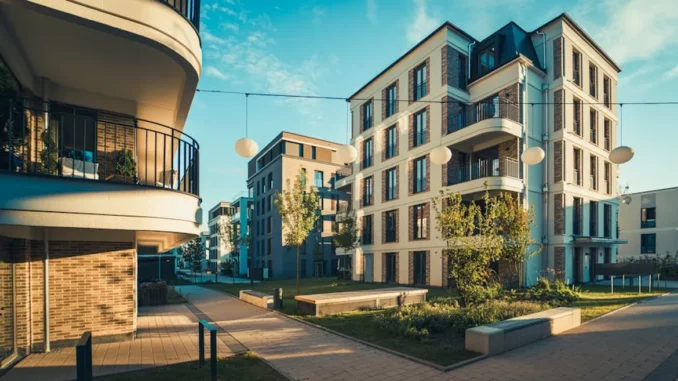
Earlier this week, I had the privilege of sitting down with Emily Turner, a project manager spearheading an ambitious initiative aimed at decarbonising 1,000 social housing units across the United Kingdom. This pioneering project is a collaborative venture between NatWest and British Gas, who have formed a consortium to simplify and reduce the costs of retrofitting for landlords. As a staunch advocate for sustainable housing practices, Emily offered invaluable insights into this transformative scheme.
Focus360 Energy: property compliance services – pre-planning to post-construction. Learn more.
“The progress we’ve made is fantastic,” Emily began, echoing the sentiments of Marcos Navarro, Director & Sustainability Lead at NatWest Group. “Our primary focus is on reducing energy demand and carbon emissions. This project serves as a blueprint for achieving these objectives on a larger scale.”
The Challenge of Retrofitting
Retrofitting homes to enhance energy efficiency is not without its challenges. Emily was forthright about the obstacles ahead. “The average cost to retrofit a home can be as high as £35,000. For landlords, particularly those managing social housing, this cost is a significant financial burden,” she explained. The consortium’s aim is to streamline the retrofitting process and reduce costs, making it more feasible for landlords to undertake these essential upgrades.
The scale of the task is considerable. NatWest Group reports that to achieve the necessary reductions in energy demand across UK buildings, one million homes need to be insulated annually by 2030. “We’re starting with 1,000 homes, but the hope is that this project will create a scalable model that can be replicated nationwide,” Emily stated.
A Collaborative Effort
A cornerstone of this venture is the consortium itself, which unites a diverse array of stakeholders from various sectors. “It’s not just NatWest and British Gas,” Emily noted. “We have local councils, housing associations, and numerous sustainability experts all working in concert. This collaborative approach is vital for addressing the multifaceted challenges of retrofitting.”
Emily emphasised that one of the consortium’s goals is to develop a more standardised approach to retrofitting. “By collaborating, we can establish best practices and share knowledge, ultimately making the process more efficient and cost-effective.”
The Human Element
While the technical aspects of the project are crucial, Emily was keen to highlight the human dimension. “Ultimately, this is about improving residents’ quality of life,” she asserted. “Energy-efficient homes are not only better for the environment, but they are also more comfortable and economical to live in.”
She recounted a recent visit to one of the initial homes retrofitted under the project. “The family living there was ecstatic about the improvements. Their home is warmer, and their energy bills have dropped significantly. Witnessing the tangible benefits of our work is immensely rewarding.”
Looking Ahead
As our conversation drew to a close, Emily shared her vision for the project’s future and its broader impact. “This is just the beginning. Although we have a long journey ahead, I am confident we are on the right path. By making retrofitting simpler and more affordable, we can foster a more sustainable future for everyone.”
She expressed optimism about the ongoing roles of NatWest and British Gas in this endeavour. “Both companies are deeply committed to sustainability, and their participation in this project underscores their dedication to driving meaningful change. It’s an exhilarating time to be involved in this field.”
Emily’s passion and commitment were evident throughout our discussion. As a journalist, it was heartening to learn about such a proactive approach to one of our most pressing issues. The success of this project could pave the way for broader adoption of sustainable practices in the housing sector, benefiting both the environment and the residents of these homes.
The collaborative efforts of NatWest, British Gas, and their partners are setting a new benchmark for retrofitting homes in the UK. By making the process more accessible and cost-effective, they are not only reducing carbon emissions but also enhancing residents’ quality of life. This project exemplifies what can be accomplished when diverse sectors unite with a shared objective, offering a promising glimpse into a more sustainable future.


Be the first to comment